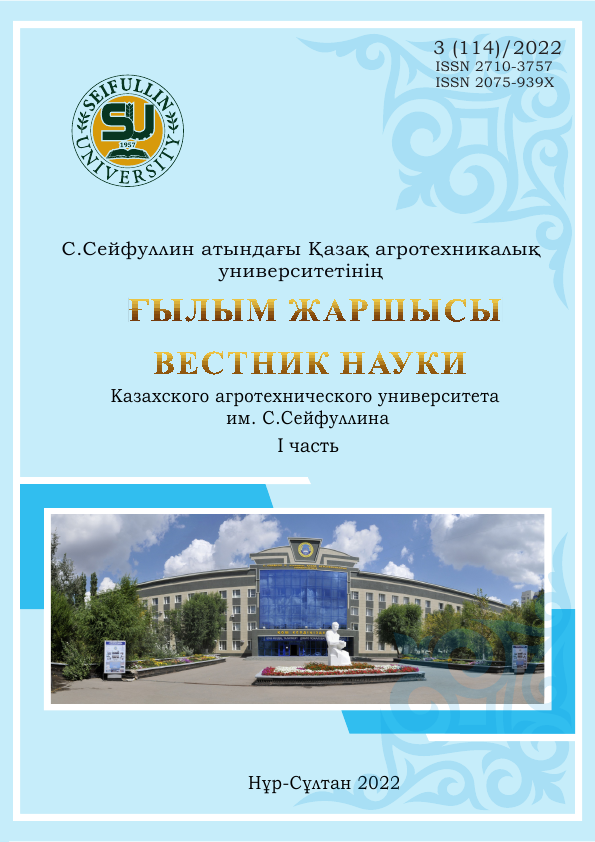PHYTOSANITARY STATE OF SPRING WHEAT SEEDS IN THE CONDITIONS OF THE NORTH-EAST OF KAZAKHSTAN
DOI:
https://doi.org/10.51452/kazatu.2022.3(114).1129Keywords:
seeds; wheat; variety; phytoexpertise; sowing qualities; germination capacity; phytopathogenAbstract
Phytopathological examination of seeds becomes an obligatory technique,
because of the significant seeds damage by the composition of pathogens of
saprophytic and parasitic infections. This makes it possible to control the state of
the seeds and competently solve protection issues. Timely examination of seed
material for infection with diseases can reduce the risks of financial losses and get
the expected harvest. In this paper the phytosanitary state of spring wheat seeds in
the conditions of the North-East of Kazakhstan (on the example of the Pavlodar
region) was established. The aim of the research is to determine the sowing
qualities of seeds and study the composition of the pathogenic microflora of spring
wheat seeds. In total, 72 batches of 21 varieties of spring wheat from 6 districts of
Pavlodar region were analyzed. As a result of the conducted research, a high
degree of root rot pathogens infection of seeds was revealed. The Bipolaris
sorokiniana, fungi of the genus Alternaria, Fusarium and pathogens of spring
wheat bacteriosis were determined as dominant phytopathogens. In order to
improve seed quality measures were proposed.

